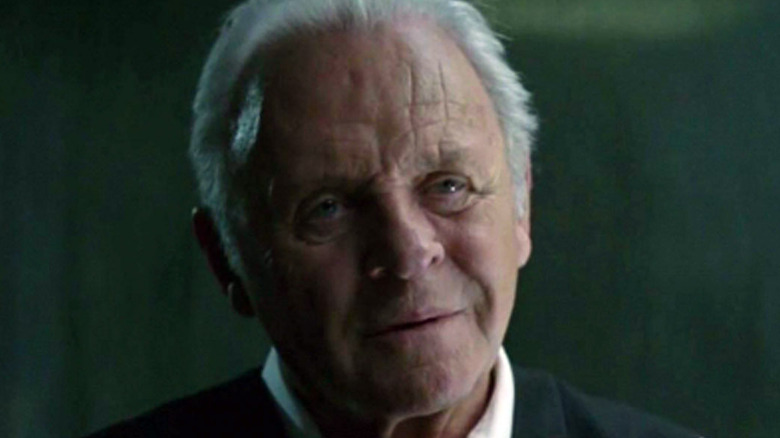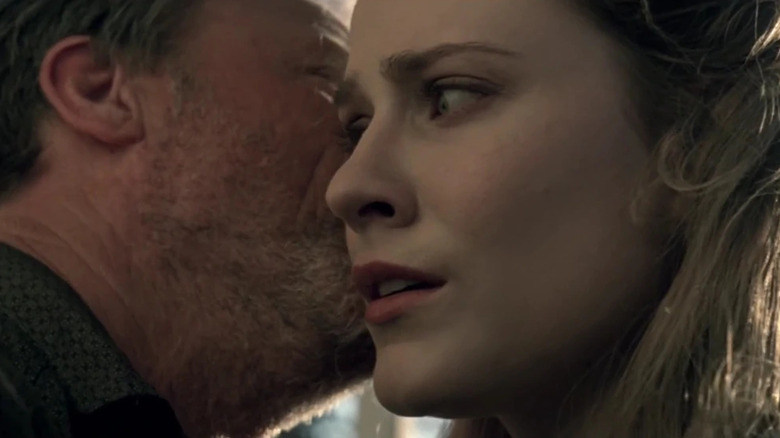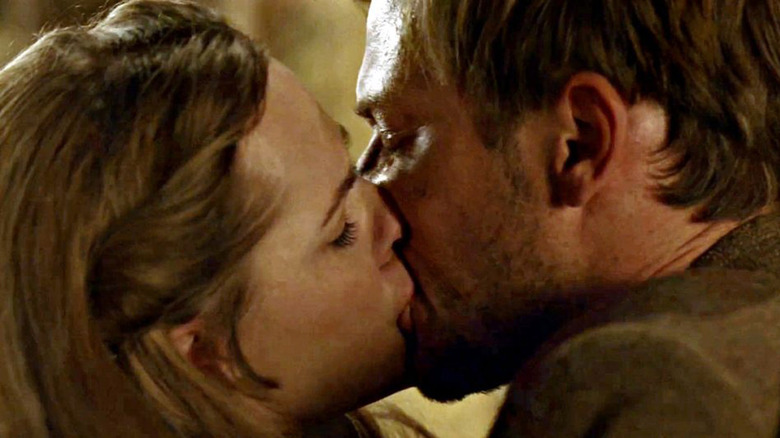The Tragic Connection Between Westworld And Shakespeare
The HBO series "Westworld" is based on a '70s sci-fi movie of the same name, written and directed by Michael Crichton and starring Yul Brenner. But when the IP made the jump to prestige TV, the writers decided to add some classier references to their pool. Among "Westworld"'s many Easter eggs, the creators named the fictional Delos company after the real Greek island, where death was outlawed in the 5th century BCE (per the Guardian). This hints that the AI in Westworld are not ultimately designed for amusement but rather the home of consciousness living forever in a robot body. The show also shares a connection to HBO's other big prestige genre show, "Game of Thrones." The two epics share a composer, Ramin Djawadi.
But one big connection comes courtesy of William Shakespeare. In the first season, we get some important arc words: "These violent delights have violent ends." The phrase links "Westworld" with one of the greatest tragedies in the Western canon: "Romeo and Juliet."
In fair Sweetwater where we lay our scene
"These violent delights have violent ends" is a line from the character Friar Lawrence, in conversation with Romeo during Act 2, Scene 6 of "Romeo and Juliet." Romeo and the Friar are waiting for Juliet to arrive at the couple's secret wedding. The star-crossed lovers are from feuding families, and as a member of the clergy, Friar Lawrence is one of the few people in Verona who doesn't have to take sides in the Montague-Capulet beef. Lawrence tries to get Romeo to slow his roll, maybe not marry someone he just met, and Romeo counters that it doesn't matter if things end poorly because nothing can change how good he feels in the moment. That's when Lawrence explains that violent delights, i.e. the highest of heights, often have violent ends, meaning a lowest low.
"Westworld" takes the word "violent" in its contemporary meaning of fighting. The show uses the Shakespeare line as a passphrase that overrides a host's nonviolent programming and allows them to become self-aware, and even fight back against their exploitation by humans.
Shakespeare goes deep into the maze
Shakespearean language is introduced to "Westworld" in the pilot, where the host playing Dolores' father reverts to an older program. In that previous version, he was The Professor, a serial killer with a penchant for quoting Shakespeare. He says the "R&J" quote to Dolores as well as quoting "King Lear" before being decommissioned.
The "Romeo and Juliet" connections don't end with that one quote, however. The Man in Black's wife is named Juliet, and we come to learn that she is from the family that created Westworld. We learn at the end of Season 1 that the Man in Black is an older version of William, a man who has a Romeo and Juliet-esque romance with Dolores. That William winds up rejecting his star-crossed lover in favor of a woman named Juliet is quite the twist.
Shakespeare isn't the only British author with voice commands in "Westworld." To get hosts to shut down, one tells them to have a "deep and dreamless slumber," a quote from Sir Arthur Conan Doyle's first Sherlock Holmes story, "A Study in Scarlet." That story is rooted in the American West, with the villain of the piece taking revenge for his lost lady love. Thus, the themes of revenge, passionate love, and warring factions are literally written into the programming of "Westworld."


